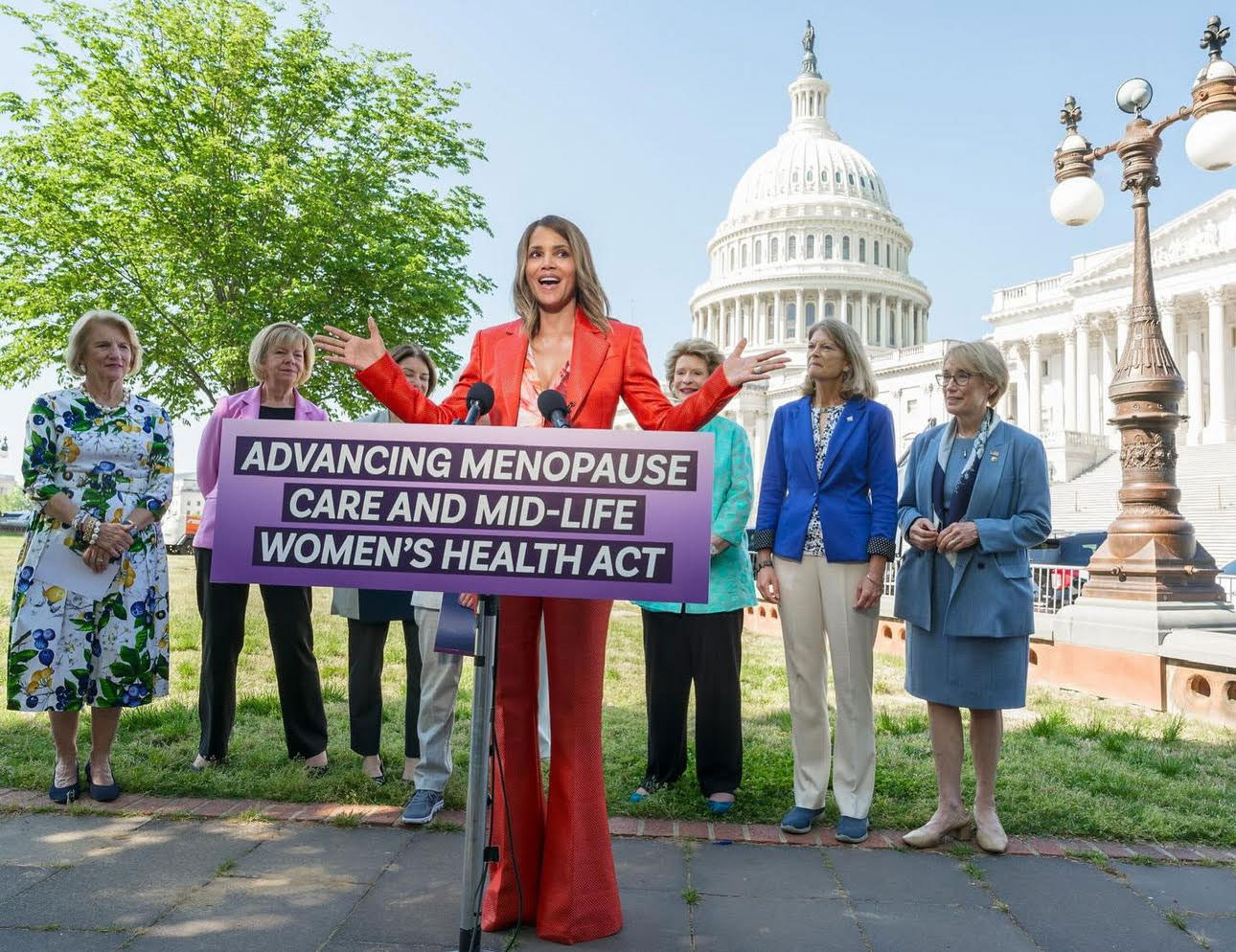Advocacy

Seventy-five million women are in perimenopause, menopause, or post-menopause right now in the United States—with 6,000 more women reaching menopause each day. But despite the fact that half the U.S. population will eventually experience menopause, menopause research has long been underinvested in and overlooked. To date, very few federal research, awareness, education, and outreach programs specifically focus on menopause and mid-life women’s health issues. To date, there is a dearth of federally funded clinical trials on menopause and menopausal hormone therapy and very little menopause education for doctors—only 30 percent of U.S. residency programs offer a formal menopause curriculum according to a recent survey, and 80 percent of OB/GYN residents admit to being ill-prepared to discuss menopause.
The bipartisan Advancing Menopause Care and Mid-Life Women’s Health Act would strengthen and expand federal research on menopause, awareness and education efforts, healthcare workforce training, and public health promotion and prevention to better address menopause and mid-life women’s health issues.
- Authorize $25 million per year over five fiscal years for NIH to award grants to support
biomedical, public health, clinical, and translational research and innovation related to menopause and mid-life women’s health. - Establish new Research, Condition, and Disease Categorization (RCDC) categories for chronic or debilitating conditions among women related to menopause and mid-life women’s health.
- Strengthen coordination within the NIH and across HHS to expand federal research into
menopause and mid-life women’s health and prevent adverse health outcomes among women experiencing menopause and postmenopausal syndrome. - Support translational research activities to speed the translation of federal research to support
health care delivery of perimenopause and menopause care and related women’s health services. - Require HHS to expand public health research, health care quality research, data collection and reporting, and occupational health research related to menopause and mid-life women’s health.
- Support public health promotion activities to address chronic conditions affecting mid-life women’s
health, strengthen early detection, diagnosis, and treatment of menopausal symptoms; improve healthcare delivery; and support the development of recommendations and best practices to expand access to mental and behavioral health care services for women experiencing perimenopause or menopausal
symptoms. Authorized at $10 million per year over five fiscal years. - Establish a national public health awareness, education, and outreach program on menopause and
mid-life women’s health. Authorized at $10 million per year over five fiscal years. - Improve professional training resources for healthcare providers on menopause and mid-life women’s health through a new grant program. Authorized at $10 million per year over five fiscal years.
- Direct the designation of Centers of Excellence in Menopause and Mid-Life Women’s Health and authorize grants to support the improvement of professional training resources for health care providers on menopause and mid-life women’s health.
- Require HHS to report to Congress on federal research activities related to menopause and mid-life women’s health, related barriers to care for patients in rural and underserved areas, barriers to training for health care providers, and recommendations to expand access to care and increase public awareness.
- Support coordination between HHS and other federal departments and agencies—including the VA and DoD—related to menopausal symptoms, mid-life women’s health, again, and public health promotion activities.

